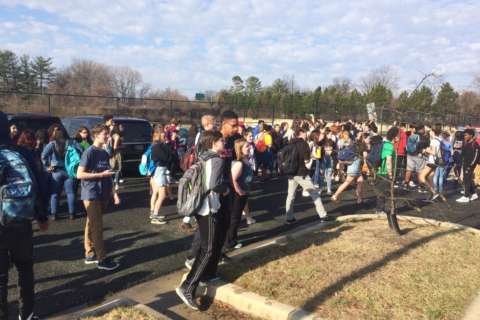WASHINGTON — An entire generation of young people is making headlines through their activism, use of social media, diversity and demand to be heard.
No, it’s not millennials; it’s Generation Z.
“There are a lot of factors that set Generation Z, or the post-millennials, apart,” said Stef Woods, a professor of American studies at American University. “Studies have shown they will tend to be a bit more entrepreneurial and will be pursuing higher education in slightly less numbers than millennials.”
Generally speaking, members of Generation Z were born between 1998 and the early 2000s. As a whole, the generation tends to be more individualistic and is also the most racially and ethnically diverse in the U.S., Woods said.
Unlike millennials, Generation Z is also coming of age and entering the workforce into a decent economy.
“Millennials were growing up in the age of the recession, so that’s going to influence how they’re looking at prices, marketing and advertising,” Woods said. “That Gen Z might not feel that; however, it doesn’t mean that marketing and advertising won’t also try to cater toward them.”
Even after Generation Z is fully grown, millennials will still be the largest living generation in the U.S., with more than 80 million people, but Woods said that companies will still want to make sure they’re crafting messages to cater to Generation Z.
“You’ll be recognizing that younger consumers are consuming different products in different ways, and you’ll want to cater to them also,” Woods said. “So recognizing their purchasing power and their needs and interests at different ages will change. I think that Gen Z will be driving the use of technology in different ways.”
One of the ways Generation Z is driving the use of technology is with social media, a technology they have grown up with.
Woods said their familiarity with social media is already having a very visible impact on politics.
“Gen Z has already shown its power in terms of organizing and mobilizing — it’s interesting in being a driving force of change,” Woods said. “Gen Z will likely be the second-largest voting demographic in the 2024 election.”
The school shooting in Parkland, Florida, that killed 17 students has prompted a wave of activism and protests in high schools around the country centered on gun control.
Much as the 9/11 attacks were the seminal moment for most millennials, Woods said gun violence at schools could be the formative moment for Generation Z.
“I think it’s also the generation that is most directly affected saying ‘This is enough and we are going to take a stand — we’re going to march; we’re going to rally; we’re going to speak,'” Woods said.





